Awareness Today . . .
. . . Before It Is Too Late for the Earth’s Tenants.
The theme of this year’s United Nations Economic and Social Council (ECOSOC) High-Level Segment, “From global to local: supporting sustainable and resilient societies in urban and rural communities,” which is going to be held from July 16–19 in New York, is very timely. The Legion of Good Will (LGW) has been addressing this topic in several ways and has been taking into special consideration socially vulnerable populations. They have been trained and empowered by the Organization so they can overcome the socioeconomic difficulties they face, as well as the personal hardships that so often afflict them. This undertaking has enabled these populations to build a better future, not only for themselves but for future generations as well.
Our contribution has also been that of fostering environmental awareness among all peoples, because as I have defended for decades, the destruction of Nature is the extinction of the human race. It is evident that this is not just a simple catch phrase to grab the attention of Humanity, always in a hurry and often towards its own extermination.
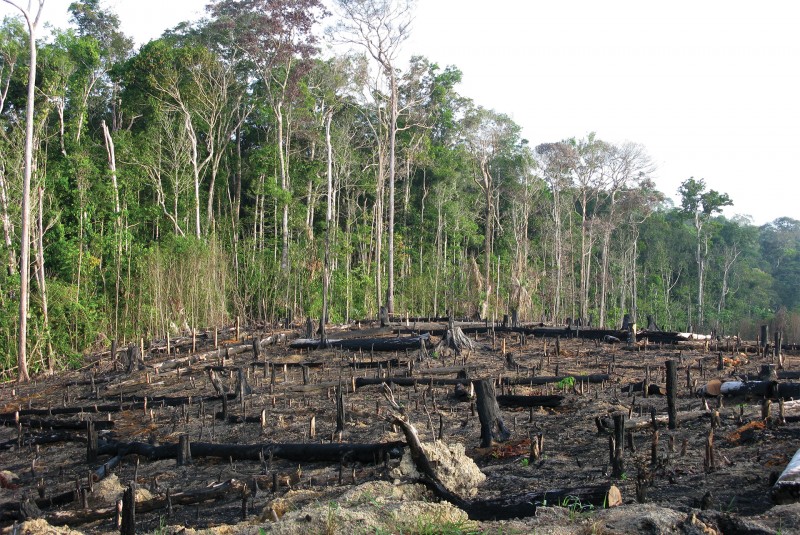
In general, human beings act like there is no tomorrow. For this reason, they fail to assess the future results of their present actions. This is worrisome, because when the devastating effects of bad sowing reach us, the situation may be irreversible or followed by enormous losses.
Sustainability is the word of the hour. However, do we act according to its meaning? Problems related to natural resources increase every day. Look at how water levels in reservoirs are getting lower in several Brazilian cities and across the world!
From time to time, new studies have demonstrated that any unbridled action against the environment causes some kind of local or distant imbalance. Even so, trees continue to be an “inconvenience” or the object of endless greed in the Amazon, in the Atlantic Forest, or anywhere else on the planet. Until when?
War on ocean plastics pollution
Look at the proliferation of disposable waste and microplastics found in cosmetics and personal care products. Over the last twenty years, this issue has become a worldwide emergency, to the point that in February 2017 the UN launched its Clean Seas campaign. For five years, the initiative will work to combat marine litter, 60 to 90 percent of which is composed of several types of plastic of different sizes and at different stages of degradation.
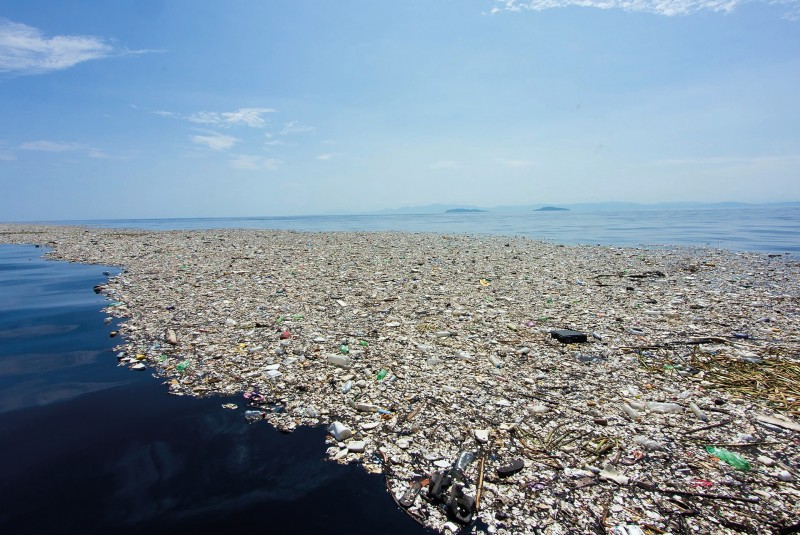
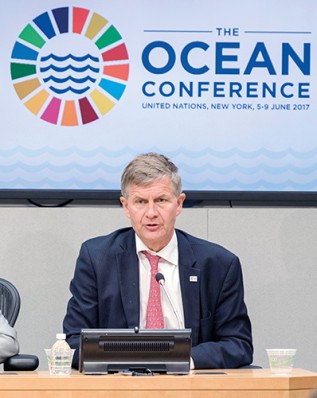
Erik Solheim.
The situation is extremely serious. It is estimated that if there are not significant changes in the current scenario by 2050, there will be more plastic in the seas than fish (measured by weight). As A situação é extremamente séria. Estima-se que, se não houver mudanças significativas no cenário atual até 2050, haverá mais plástico nos mares do que peixes (medidos por peso). Como Erik Solheim, the Executive Director of the UN Environment Programme (UNEP) and the person in charge of the campaign, very clearly warns: “It is past time that we tackle the plastic problem that blights our oceans. Plastic pollution is surfing onto Indonesian beaches, settling onto the ocean floor at the North Pole, and rising through the food chain onto our dinner tables. We have stood by too long as the problem has gotten worse. It must stop.”
There is hope that people all around the globe— from the simplest individual to those who govern nations—take resolute actions to conserve our species. If things continue as they are, we could be reading reports like this in the future: “Few human specimens remain in such location. The region, once full of life, has become hostile, totally damaged by drought and the lack of vision of its residents.” It may seem shocking, but the children of the current generation and subsequently their grandchildren are asking for help from those who today waste in a condemnable manner what the planet has to offer.
Hawking: colonize space to survive

Stephen Hawking
Renowned English astrophysicist Stephen Hawking (1942-2018) came to the point of affirming to the website Big Think that “our only chance of long-term survival is not to remain inward looking on planet Earth, but to spread out into space.” He continues: “I see great dangers for the human race. There have been a number of times in the past when its survival has been a question of touch and go. . . . Our population and our use of the finite resources of planet Earth are growing exponentially, along with our technical ability to change the environment for good or ill.”
It should also be stressed that many idealistic and pragmatic people have given an active voice to the fauna and flora around us. Yet this awareness needs to be multiplied everywhere, starting with children, at home, and in schools.
Calming the storms
Confident, we pray to God for the appeasement of the inclement weather conditions that cause suffering to a great number of people around the world every year. And let us be citizens aware that, if we are worthy, Jesus, the Ecumenical Christ, the Divine Statesman, in person again, will work the miracles reported in the Gospel according to Luke 8:24, when the Celestial Helmsman calmed a storm.
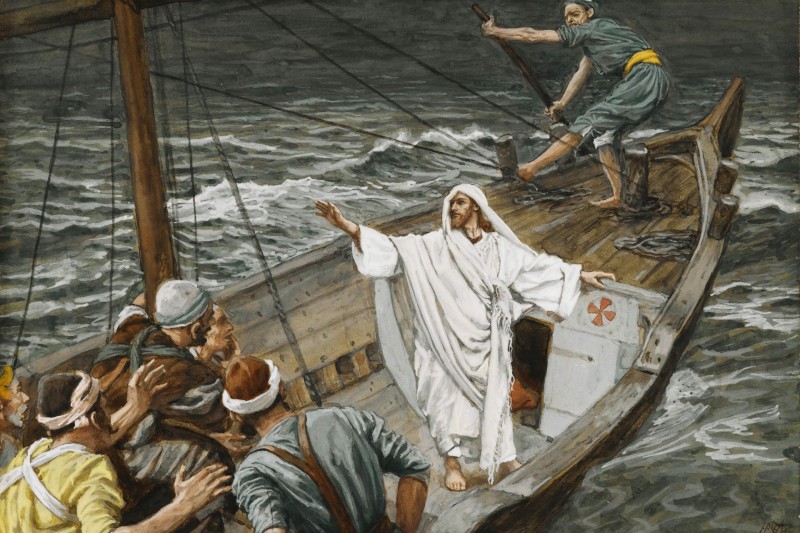
The Master of the Millennia will come and rebuke the wind and the fury of the water, also symbolized today by its very scarcity. Enjoying peacefulness in the present time depends on harmonious coexistence with Nature.
To conclude, I bring you extracts from the article “LGW, 1992 Rio Earth Summit, and the Challenges of Rio+20,” through which I humbly addressed the world’s Heads of State and their delegations, as well as the representatives of civil society present at the United Nations Conference on Sustainable Development (UNCSD), the Rio+20, held between June 13–22, 2012, in Rio de Janeiro. Specially for this event, we sent the GOOD WILL Environment magazine published in English, French, Portuguese, and Spanish.
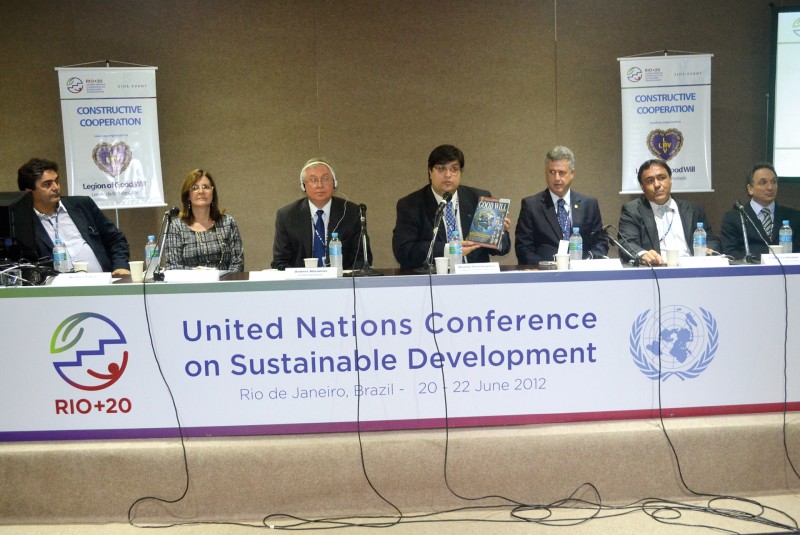
The LGW constantly promotes and coordinates meetings and debates during the events of the United Nations. In 2012, the Constructive Cooperation thematic panel at the Rio+20 (photo) was held with the support of the UN
Department of Economic and Social Affairs (UN/DESA). Businesspeople,
authorities, and delegations from several countries gathered to discuss the bases of sustainable development and in what way multistakeholder partnerships can help drive it forward.
Strivers
In order for our planet to survive the effects of so much greed over the centuries, let the truth be told, we have seen notable efforts by researchers and citizens engaged in improving the quality of life around the globe. Allied to initiatives aimed at healthy eating—through organic agriculture, alternative means of transportation, environmental protection, recycling, proper waste management, and use of rainwater—excellent work being developed by scientists and other scholars promise good results in the short and long term. For example, intense research is being conducted in the energy area, particularly in relation to renewable and clean sources: biofuel, biomass, blue energy, geothermal energy, hydraulic energy, hydroelectricity, solar energy, tidal energy, wave energy, and wind power, not to mention other little-known objects of study and those that have yet to be discovered. Faith is the fuel of Good Deeds.
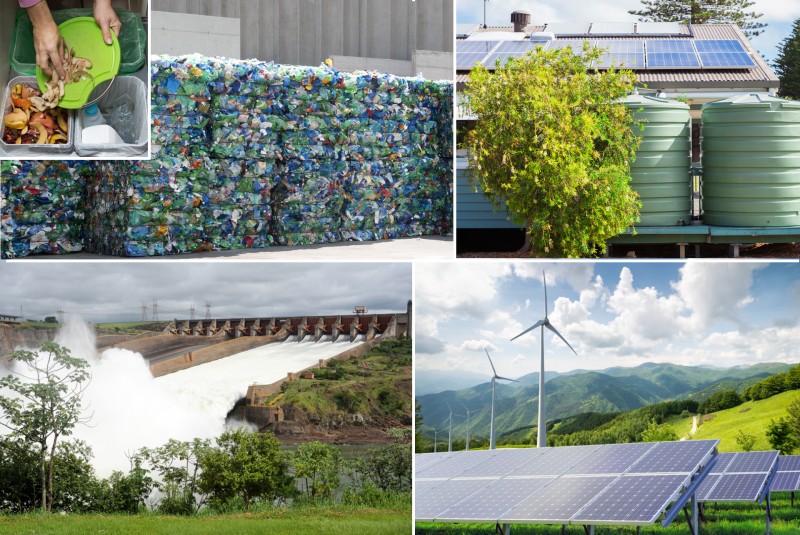
“Do not throw in the towel”
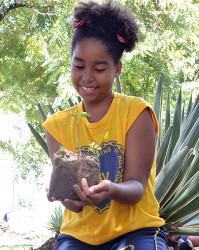
I feel impelled to emphasize the militant effort in favor of the environment made by serious and active government entities and civil society organizations in Brazil and throughout the world; multitudes of idealists who “do not throw in the towel” and remain on the frontlines battling for a truly better planet.
Our motto is this: Educate. Conserve. Survive. Humanly we are also Nature.
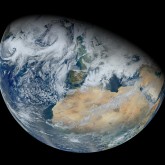
The comments do not represent the views of this site and are the sole responsibility of their authors. It denied the inclusion of inappropriate materials that violate the moral, good customs, and/or the rights of others. Learn more at Frequently asked questions.
India